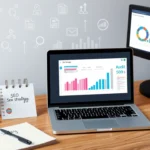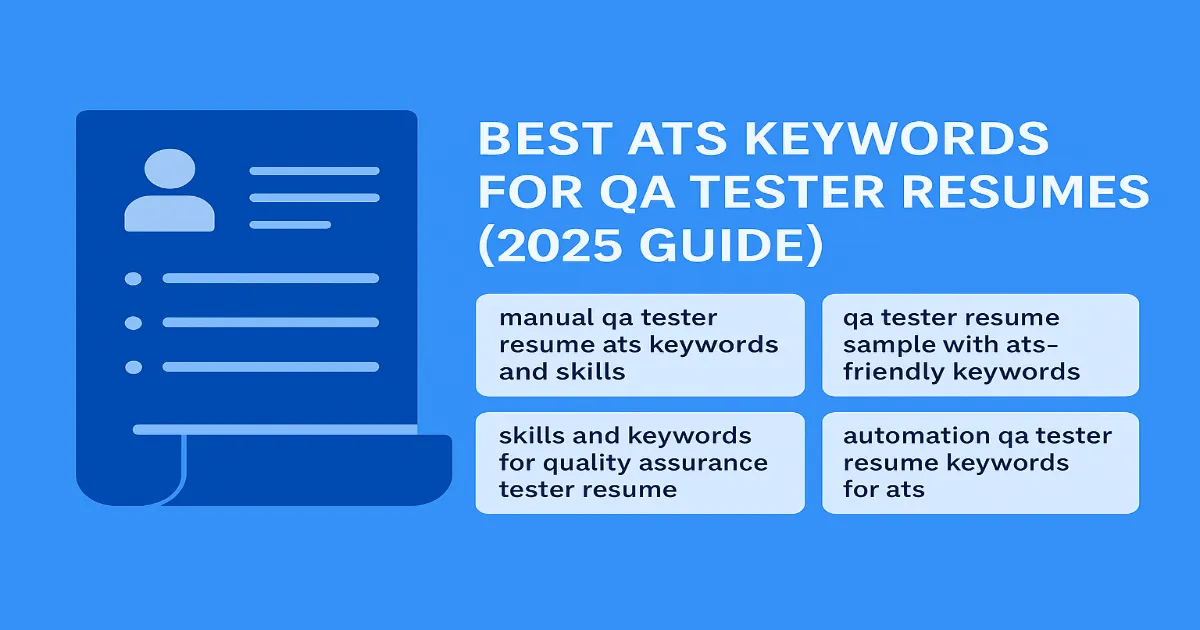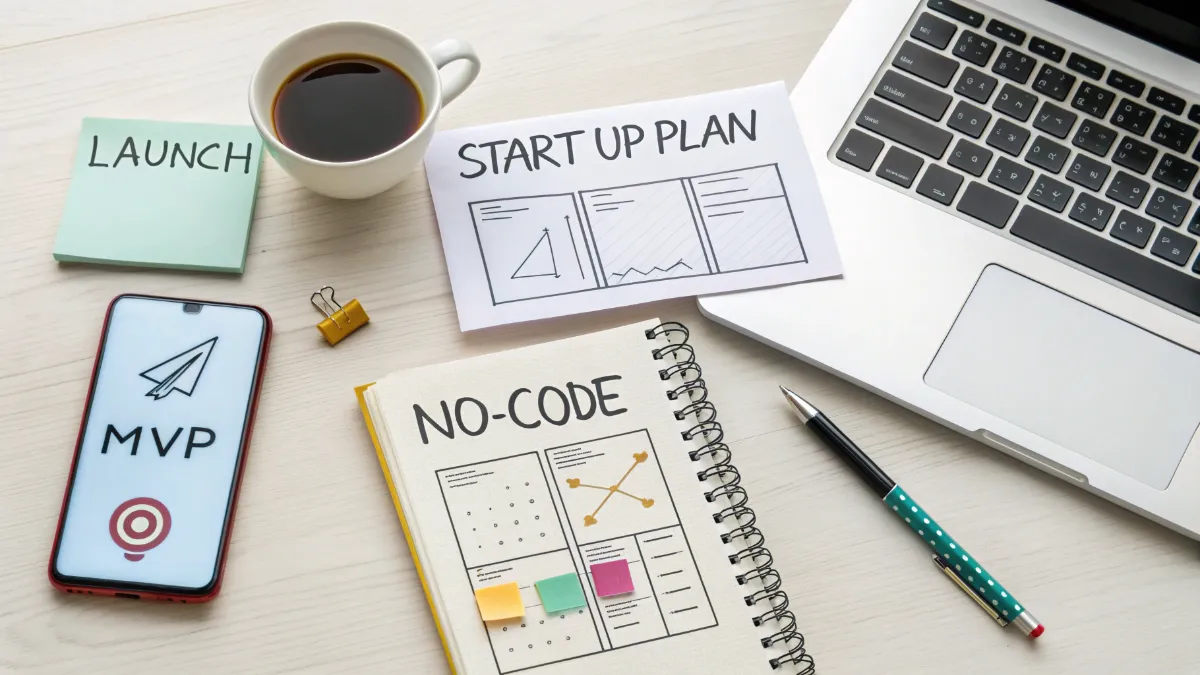You’re scrolling through job boards, and every other posting screams “data analyst wanted” with salary figures that make your current paycheck look like lunch money. Meanwhile, you’re sitting there thinking, “I can barely figure out Excel formulas, let alone become a data wizard.”
- How to Become a Data Analyst with No Experience: The Market Reality
- What You Need to Learn (Spoiler: It’s Less Than You Think)
- Your Step-by-Step Guide: How to Become a Data Analyst with No Experience in 90 Days
- Building a Portfolio That Gets You Hired
- The Job Hunt Strategy That Works
- Salary Expectations: The Good News
- The AI Question Everyone’s Asking
- Certifications Worth Your Time (And Money)
- Common Mistakes That Kill Job Applications
- Your Next Steps (Start Today)
- The Bottom Line
- FAQs for “How to Become a Data Analyst with No Experience in 2025”
Here’s the thing – that voice in your head is lying.
How to become a data analyst with no experience in 2025 isn’t just possible; it’s one of the smartest career moves you can make right now. The field is exploding with opportunities, companies are desperate for talent, and the barriers to entry? They’re lower than you think.
I’ve watched countless people make this transition – from retail managers to nurses, teachers to bartenders. What they all had in common wasn’t a computer science degree or years of experience. It was the right roadmap and the guts to follow it.
Learning how to become a data analyst with no experience starts with understanding that this career path is more accessible than ever before.
Let me show you exactly how to join their ranks.
How to Become a Data Analyst with No Experience: The Market Reality
The numbers don’t lie – and as a future data analyst, you’ll love this part. Data scientist employment is projected to grow 36% from 2023 to 2033, which is rocket ship speed in career terms. But here’s the kicker: data analyst positions specifically are looking at 23% growth by 2032.
Translation? We’re talking about one of the hottest job markets on the planet.
Why the sudden demand? Every company from your local coffee shop to Fortune 500 giants is drowning in data. They’ve got customer info, sales figures, website clicks, social media metrics – you name it. But raw data is like having a library in a foreign language. They need translators. They need you.
The sweet spot? Organizations increasingly value professionals who can communicate findings effectively to non-technical stakeholders. This isn’t about being the smartest person in the room with algorithms. It’s about being the bridge between numbers and business decisions.
Where the Jobs Are
Data analysts aren’t just hiding in tech companies. You’ll find opportunities in:
- Healthcare systems analyzing patient outcomes
- Retail chains optimizing inventory
- Government agencies tracking public services
- Insurance companies assessing risk
- Marketing teams measuring campaign performance
- Manufacturing plants improving efficiency
The beauty? You can often leverage whatever industry knowledge you already have. Worked in healthcare? Perfect – you understand the business side. Retail background? You know what metrics matter to operations.
What You Need to Learn (Spoiler: It’s Less Than You Think)
Let’s cut through the noise. Every “learn data analysis” article throws around dozens of tools and technologies. Here’s what you need to focus on first:
Essential Skills You Need to Become a Data Analyst with No Experience
SQL proficiency is arguably the most critical skill for securing employment, showing up in virtually every job posting. Think of SQL as the universal language for talking to databases.
Why it matters: Every company stores their data somewhere, and SQL is how you access it. No SQL skills = no job. It’s that simple.
Real talk: SQL isn’t as scary as it looks. It’s asking databases questions in a structured way. “Show me all customers who bought something last month” becomes a SQL query. Start with basic SELECT statements and work your way up.
SQL: The Foundation for Anyone Learning How to Become a Data Analyst
Python has emerged as the leading choice due to its versatility and extensive library ecosystem. While R is also valuable, Python wins for beginners because its syntax resembles English.
What you’ll use it for:
- Cleaning messy data (trust me, all data is messy)
- Performing calculations Excel can’t handle
- Creating automated reports
- Building simple machine learning models
Pro tip: Don’t try to learn everything at once. Master pandas for data manipulation and matplotlib for basic charts. That covers 80% of daily tasks.
Visualization Tools: Making Data Pretty
Tableau leads the market with 28.1% of job postings requiring this skill, followed closely by Power BI at 24.7%. These tools turn your analysis into charts and dashboards that make sense to business people.
The reality check: You don’t need to master both. Pick one and get good at it. Tableau has more job postings, but Power BI is often easier for beginners and comes with Microsoft Office.
Excel: The Underrated Hero
Plot twist: Microsoft Excel is referenced in 41.3% of job postings. While everyone’s chasing the latest tools, Excel remains the workhorse of business analysis.
Why it still matters: Not every analysis needs Python. Sometimes a well-built Excel model is exactly what the business needs. Plus, mastering Excel’s advanced features (pivot tables, VLOOKUP, Power Query) gives you immediate value in most offices.
Your Step-by-Step Guide: How to Become a Data Analyst with No Experience in 90 Days
The truth is, if you’re wondering how to become a data analyst with no experience, you’re asking the right question at the perfect time. This roadmap has helped hundreds of career changers break into data analytics, and it can work for you too.
Month 1: Foundation Building
Week 1-2: SQL fundamentals
- Complete SQLBolt or W3Schools SQL tutorial
- Practice with sample databases
- Focus on SELECT, WHERE, GROUP BY, JOIN
Week 3-4: Excel mastery
- Learn pivot tables inside and out
- Master VLOOKUP and INDEX/MATCH
- Get comfortable with basic charts
Month 2: Programming Power
Week 1-2: Python basics
- Complete Python for Everybody course
- Focus on pandas library
- Practice data cleaning exercises
Week 3-4: Data visualization
- Choose Tableau or Power BI
- Complete official tutorial
- Create 2-3 practice dashboards
Month 3: Portfolio Building
Week 1-4: Real projects
- Find interesting datasets online
- Complete end-to-end analysis projects
- Document everything for your portfolio
Building a Portfolio That Gets You Hired
Understanding how to become a data analyst with no experience means recognizing that your portfolio is your golden ticket. Projects should showcase real-world problem-solving capabilities using publicly available datasets. Here’s what works:
Project Structure That Impresses
| Project Component | What to Include | Why It Matters |
|---|---|---|
| Business Question | Clear problem statement | Shows you think like a business person |
| Data Source | Where you got the data | Demonstrates research skills |
| Cleaning Process | How you prepared the data | Most real work is data cleaning |
| Analysis Methods | What techniques you used | Shows technical competence |
| Key Insights | What you discovered | Proves analytical thinking |
| Recommendations | What actions to take | Shows business impact focus |
Portfolio Project Ideas
Beginner-friendly options:
- Analyze your city’s crime data trends
- Study Netflix viewing patterns using public datasets
- Examine COVID-19 impact on local business reviews
- Investigate housing price factors in your area
Pro tip: Use problems from your current industry. If you’re in retail, analyze sales data. In healthcare? Look at patient satisfaction scores. This shows domain expertise alongside technical skills.
GitHub: Your Professional Showcase
Set up a GitHub account and upload your projects. Include:
- Clean, commented code
- Clear README files explaining each project
- Screenshots of your visualizations
- Links to live dashboards (if possible)
Most hiring managers will check your GitHub. Make it count.
The Job Hunt Strategy That Works
Traditional job applications have terrible success rates for career changers. Here’s what works better:
Target Entry-Level and Business-Focused Roles
Many employers specifically value candidates with limited professional experience, recognizing that they can approach work without preconceived methods or biases. Look for titles like:
- Junior Data Analyst
- Business Analyst
- Marketing Analyst
- Operations Analyst
- Research Analyst
The Numbers Game
Apply to lots of positions, but personalize each application. Mention specific projects from your portfolio that relate to their industry. Show you understand their business challenges.
Many people ask me about the realistic timeline for how to become a data analyst with no experience. The honest answer? Most successful career changers land their first role within 6-12 months of focused learning. The key is consistency and building projects that showcase your growing skills.
Network Like Your Career Depends on It (Because It Does)
Join local data meetups, attend virtual conferences, engage with data professionals on LinkedIn. Many jobs never get posted publicly – they’re filled through connections.
Salary Expectations: The Good News
Let’s talk money. Data analysts earn an average salary of $111,000, representing a $20,000 increase since 2024. Even entry-level positions typically offer starting salaries in the $60,000-$80,000 range.
Salary by Experience Level
| Experience Level | Typical Salary Range | Key Factors |
|---|---|---|
| Entry Level (0-2 years) | $55,000 – $75,000 | Location, industry, company size |
| Mid Level (3-5 years) | $75,000 – $95,000 | Specialization, management duties |
| Senior Level (5+ years) | $95,000 – $130,000+ | Leadership, strategy, advanced skills |
Geographic reality: These numbers vary significantly by location. San Francisco and New York pay premium wages but have higher living costs. Remote work is expanding options, but many companies still prefer local candidates.
The AI Question Everyone’s Asking
“Will AI replace data analysts?” Short answer: No. Better answer: AI is making data analysts more powerful.
Survey data indicates that 70% of current analysts report that AI automation enhances their work effectiveness, while 87% feel more strategically valuable than ever before. AI handles the boring stuff – data cleaning, basic calculations, routine reports. This frees you up for the interesting work: asking better questions, finding unexpected insights, and making strategic recommendations.
What this means for newcomers: You’re entering the field at the perfect time. You’ll learn to work with AI tools from the start, while experienced analysts are still adapting to them.
Certifications Worth Your Time (And Money)
Certifications aren’t magic bullets, but they do provide structured learning and signal commitment to employers. Completing specialized certifications provides a concrete way to demonstrate commitment and knowledge to potential employers.
High-Value Options
Google Data Analytics Certificate (Coursera)
- Beginner-friendly
- Includes hands-on projects
- Recognized by major employers
- 3-6 months to complete
Microsoft Power BI Data Analyst Associate
- Industry-standard tool
- Practical skills focus
- Good ROI for job hunting
Tableau Desktop Specialist
- Market-leading visualization tool
- Project-based learning
- Strong employer recognition
Free Alternatives
Don’t have certification budget? These free resources are nearly as valuable:
- Kaggle Learn courses
- YouTube channels (Alex the Analyst, Ken Jee)
- FreeCodeCamp data analysis courses
- Khan Academy statistics
Common Mistakes That Kill Job Applications
I’ve seen talented people sabotage their applications. Avoid these pitfalls:
Resume Red Flags
- Listing every tool you’ve heard of (instead of focusing on what you’re good at)
- Using buzzwords without substance (“leveraged big data solutions”)
- Not quantifying your achievements (“improved process efficiency” vs “reduced report generation time by 3 hours weekly”)
Portfolio Problems
- Projects without clear business questions
- Code without comments or explanation
- Visualizations that look impressive but don’t tell a story
- No demonstration of data cleaning skills
Interview Killers
- Can’t explain your projects in simple terms
- No questions about the company’s data challenges
- Claiming expertise in tools you’ve barely used
- Not showing curiosity about the business
Your Next Steps (Start Today)
Here’s your action plan for the next 7 days:
Day 1: Set up your learning environment
- Create accounts on Kaggle, GitHub, and your chosen learning platform
- Download datasets for practice
- Join r/analytics and local data meetup groups
Day 2-3: Start SQL basics
- Complete first 10 lessons of SQLBolt
- Practice basic SELECT statements
Day 4-5: Excel advanced features
- Learn pivot tables if you don’t know them
- Practice VLOOKUP with sample data
Day 6-7: Plan your first portfolio project
- Choose a dataset that interests you
- Write down 3-5 business questions to explore
The Bottom Line
How to become a data analyst with no experience in 2025 comes down to this: focus on fundamentals, build a solid portfolio, and apply strategically. The field needs people who can think analytically and communicate clearly. Technical skills can be learned – curiosity and problem-solving instincts are harder to teach.
The opportunity is real. With 23% projected growth through 2032 and companies across every industry needing data help, there’s room for motivated newcomers who are willing to put in the work.
Start today. Your future self will thank you when you’re pulling down that six-figure salary while doing work that matters.
The data revolution needs soldiers. Are you ready to enlist?
FAQs for “How to Become a Data Analyst with No Experience in 2025”
1️⃣ Is it possible to become a data analyst without a technical degree?
Absolutely! While a degree in mathematics, statistics, or computer science can be helpful, many data analysts come from diverse educational backgrounds. The key is to develop essential technical skills like SQL, Python, and data visualization tools, and to build a strong portfolio showcasing your analytical abilities.
2️⃣ What are the most important skills for an entry-level data analyst?
For beginners, focus on:
- SQL for querying databases.
- Python (or R) for statistical analysis.
- Data visualization tools like Tableau or Power BI.
- Excel for foundational analysis.
Communication and storytelling with data are also crucial for success in this field.
3️⃣ How can I get practical experience without a job?
You can:
- Complete certifications with hands-on projects (e.g., Coursera, DataCamp).
- Build portfolio projects using publicly available datasets (e.g., Kaggle).
- Analyze data related to your personal interests or current job domain.
This shows employers your skills even if you lack formal work experience.
4️⃣ What are the average salary expectations for data analysts in 2025?
The average salary for data analysts in 2025 is around $111,000 per year, with entry-level positions typically offering $60,000 to $80,000 annually. Salary growth is driven by high demand across industries, making this a lucrative field for newcomers.
5️⃣ Do I need to learn machine learning to become a data analyst?
Not necessarily! While machine learning (ML) knowledge can be valuable, most data analyst roles prioritize SQL, statistics, and data visualization over advanced ML techniques. Focus on core skills first, and gradually explore ML as you progress.












